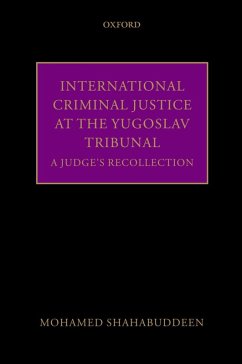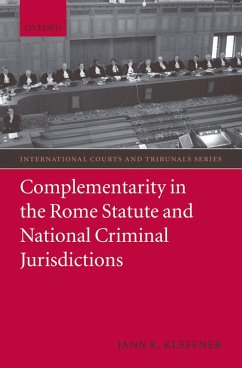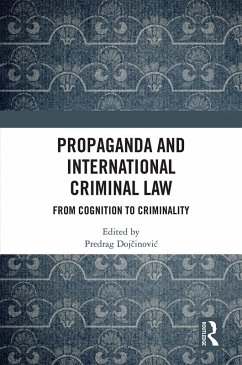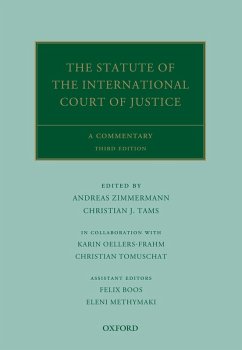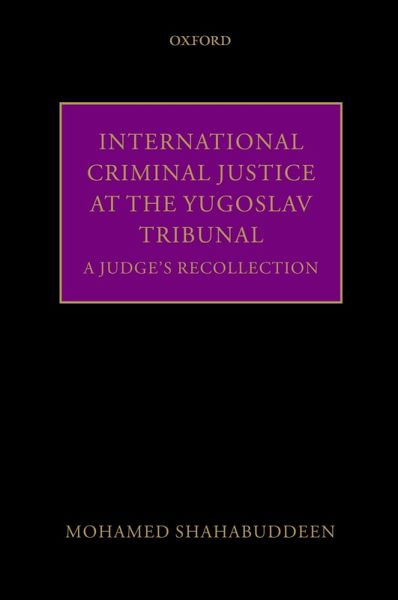
International Criminal Justice at the Yugoslav Tribunal (eBook, PDF)
A Judge's Recollection
Versandkostenfrei!
Sofort per Download lieferbar
39,95 €
inkl. MwSt.
Weitere Ausgaben:

PAYBACK Punkte
20 °P sammeln!
International criminal justice has undergone rapid recent development. Since the establishment of the International Criminal Tribunal for the former Yugoslavia (ICTY) in 1993, and the International Criminal Tribunal for Rwanda (ICTR) in the following year, the field has changed beyond recognition. The traditional immunity of presidents or heads of government, prime ministers, and other functionaries acting in an official capacity no longer prevails; the doctrine of superior orders is inapplicable except, where appropriate, as in mitigation; and the gap between international armed conflict and ...
International criminal justice has undergone rapid recent development. Since the establishment of the International Criminal Tribunal for the former Yugoslavia (ICTY) in 1993, and the International Criminal Tribunal for Rwanda (ICTR) in the following year, the field has changed beyond recognition. The traditional immunity of presidents or heads of government, prime ministers, and other functionaries acting in an official capacity no longer prevails; the doctrine of superior orders is inapplicable except, where appropriate, as in mitigation; and the gap between international armed conflict and non-international armed conflict has closed. More generally, the bridge has been crossed between the irresponsibility of the state and the criminal responsibility of the individual. As a result, the traditional impunity of the state has practically gone. This book, by one of the former judges of the ICTY, ICTR, and the International Court of Justice, assesses some of the workings of the ICTY that have shaped these developments. In it, Judge Shahabuddeen provides an insightful overview of the nature of this criminal court, established on behalf of the whole of the international community. He reflects on its transformation into one of the leading fora for the growth of international criminal law first-hand, offering a unique perspective on the challenges it has faced. Judge Shahabuddeen's experience in international criminal justice makes this volume essential reading for those interested in, or working with, international criminal law.
Dieser Download kann aus rechtlichen Gründen nur mit Rechnungsadresse in A, B, BG, CY, CZ, D, DK, EW, E, FIN, F, GR, HR, H, IRL, I, LT, L, LR, M, NL, PL, P, R, S, SLO, SK ausgeliefert werden.






